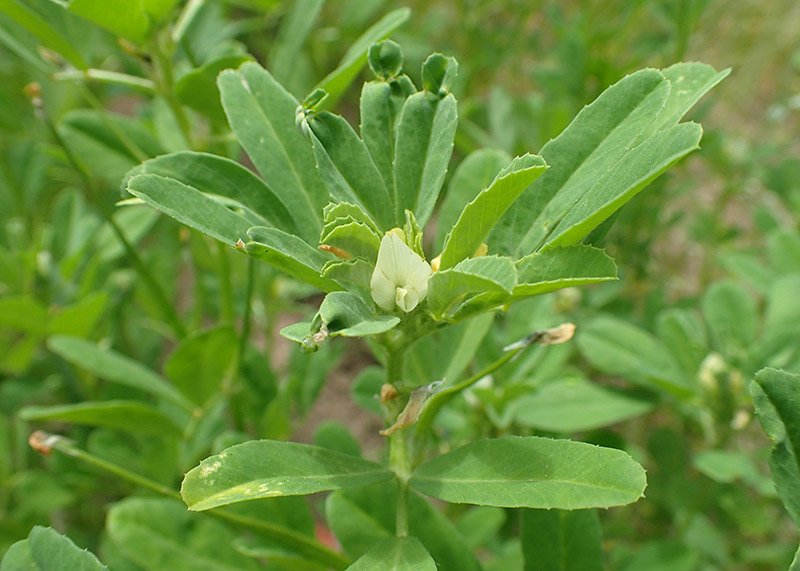Name: Fenugreek (Trigonella foenum-graecum)
Otherwise known as: Greek Hay, Bird’s Foot
Habitat: An annual member of the Leguminosae family growing to 60cm in dry meadows and hillsides and native to southern Europe and Asia. The plant bears an erect stem with trifoliate leaves, the leaves being slightly obovate and slightly toothed, with yellow to white flowers in summer that are stemless and nestle in the upper axils. The seed is brown, grooved and highly aromatic.
What does it do: The specific epithet foenum-graecum means Greek hay, which would be added to inferior hay by corn merchants to improve the odour so as to deceive the customer. The seeds are medicinally valuable being rich in proteins and mucilage; they also contain the alkaloid trigonelline, choline, fatty acids, steroidal saponins diosgenin and yanogenin. The plant is increasingly valuable to the pharmaceutical industry as a source of a steroid precursor, which can be used in sex hormone preparations. Mediterranean herbalists use the seeds in decoctions for their tonic – particularly for convalescents – stomachic, carminative, hypoglycaemic and galactagogic properties. It stimulates digestion, eases a dry cough and increases milk-flow in nursing mothers. A poultice can be made from the softened warm seeds for sprains and bruises, boils and carbuncles.
The roasted seeds are ground and added to curries and chutneys; the sprouted seeds enhance salads and are claimed to improve hair growth and libido of Asian men. Rural herbalists in Egypt claim it is as effective as quinine in treating Malaria and other fevers.
Alexander McCowan is author of The World’s most Dangerous Plants







Click here to change your cookie preferences